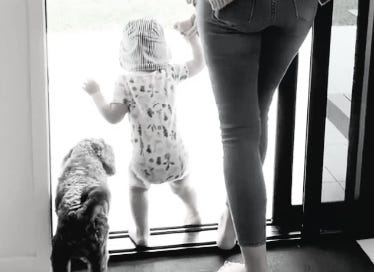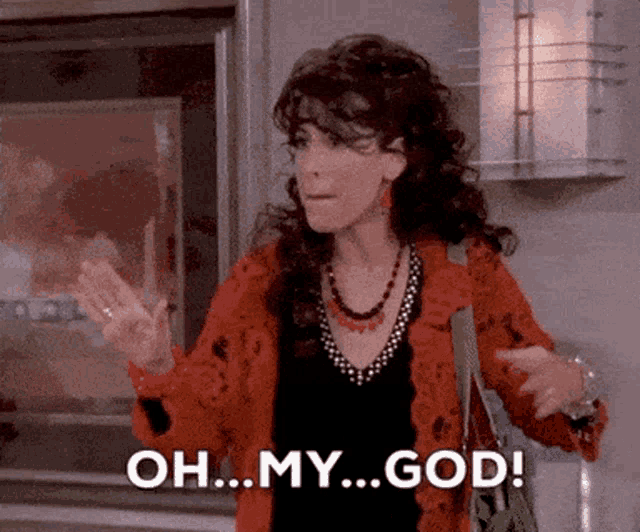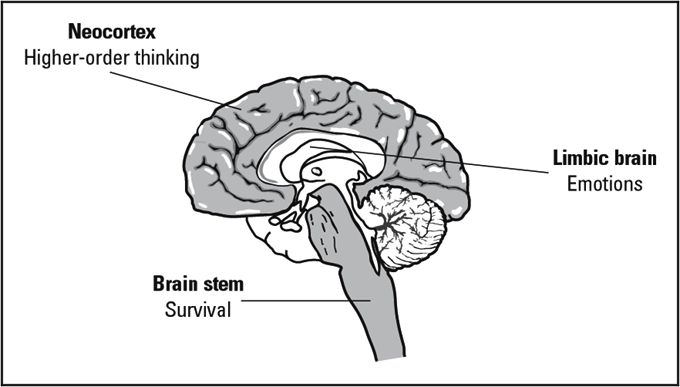It’s always more than you think
My daughter has ridden this spinning planet just once around the sun so far, yet her brain now has more connections in it than there are stars in the universe.
At present, she can only “say” a few words (or rather, the starting syllable of them). This initially fooled my mother into thinking she didn’t yet understand a whole hell of a lot.
But to my dear mum’s great surprise, when I asked my daughter to point to [any item in the room], she gleefully obliged. I confess, I felt a sense of (slightly smug) pride when my daughter’s pudgy little finger began to stab at the air around the room and my mum’s jaw dropped.
Where (How? When?) did she learn all this?
I have made a conscious effort to teach my daughter the names of items that feature heavily in our days (chair, dog, ball etc.). But somewhere along the way, she had used her own powers of deduction to figure out what and where the fridge was… the dishwasher, the air-conditioner, the washing machine, the cupboard, the fan, a sock, her shoes… on and on.
What else is she already taking in that I am unknowingly teaching her?
Unconditional love
We all strive to rectify the mistakes of our own upbringing, but sometimes it’s impossible to know just what they are, and just how to do that.
I tend to be an overly anxious person who is driven by a perpetual need to please people (often to the point of my own detriment). After some internal reflection, I came to realise that I have a core circuit within my subconscious mind that equates love with service and achievement. Somewhere during the very early years of my development, my child mind had deduced that love was conditional. (“I am only worthy of love as long as I achieve,” is a pretty strong mantra that plays on repeat in the static of my mind.)
I do not want my daughter to grow up thinking my love for her is anything but unconditional.
How do I ensure this?
Firstly, I strive to do little things like:
Celebrate the effort, not the outcome. When my daughter is struggling with something (like shape sorting) and getting frustrated, I try to make a point of saying, “Good job sweetie! You’re doing so well!” And when she succeeds, I try to say the exact same thing. (I still find myself sometimes going a little overboard with the claps though!)
Praise behaviour, not character. Early on, I found myself saying “Good girl!” when she would do something helpful. But I don’t want that Good Girl title to become a pedestal from which she is forever afraid of falling. (This applies to both praise and admonishment.) Instead, I say “Good job!” or “Thank you for your help!”
Affirmations. After discussing my worries with my husband, he actually came up with this cute idea which works on the premise of “What you hear, you become.” When either of us lays her down for naps or bedtime, we quietly say some positive affirmations like, “I am happy. I am healthy. I am brave. I am strong. I am loved.” Maybe they will gradually penetrate her subconscious and fill her with an innate sense of self-worth. It’s a nice thought.
Tell it how it is. I know that actions speak louder than words, but I figure the words can’t hurt either. So when I’m having a quiet cuddle with my daughter, I whisper in her ear some variation of “No matter what you do, or do not do, you will always have my love.”
These are things my husband and I have figured out ourselves. They just feel like the “right” - instinctive - thing to do. But I don’t want to rely on instinct alone when there is a world of information at my fingertips.
There are so many books out there on this subject, but I’ve found the ones written by Daniel Siegel to be especially helpful. (I believe his books are also what the Big Little Feelings course is based on.)
Emotional intelligence
These are the things I’ve learned that now shape the way I interact with my daughter (at least until she’s a little older and we can have a proper conversation).
Every single experience my daughter has causes direct change in her brain
I find this fact simultaneously both comforting and a little scary. (And it goes for us adults too! Our brains stay mouldable for our entire lives. If we become rigid and set in our ways, that’s on us, not biology.) Everything I say to my daughter, every situation I place her in… it all contributes to the development of her brain.
One day in the not-too-distant future, she’ll be able to choose her own experiences and therefore shape her own mind. But until then, I have the great responsibility (and duty) to choose those experiences for her.
My daughter’s brain is initially more animal than human
I admit that sounds a little jarring, but stay with me. Nature is the greatest recycler of all - rather than discarding anything, she cleverly builds on what already works. This is why we have three brains stacked like nesting dolls within our skulls.
The oldest and most deeply buried part is our “lizard brain” which is responsible for our physical survival - breathing, circulation, hunger, reproduction. Wrapped around our lizard brain is our “monkey brain” which is responsible for our feelings, emotions and long-term memory. And finally, wrapped around our monkey brain is evolution’s newest and finest crown jewel: our human “thinking” brain.
The lizard and monkey brains form our subconscious, which has no sense of time. To our animal brain, every moment is eternal. When we’re sad, our subconscious feels like (and worries) it will be sad forever. It is only our thinking human brain - our conscious - that knows the anger will pass, that time goes on.
The thing is, when my daughter came out of the womb, very little of her thinking brain was formed, but her eternal animal brains were fired up and ready to go. Her thinking brain needs time and input - life experiences - in order to develop. Logic, reason, empathy, morality, decision-making, forward-planning… These are all essentially skills that her thinking brain needs to learn - that I need to teach her. So whenever her behaviour seems illogical to me, it helps me to remember that the animal parts of her brain have likely overwhelmed her work-in-progress human brain.
Every emotion my daughter has is a valid emotion
Babies come primed with a fiercely strong circuit in their animal brain that basically (brutally) boils down to “Be accepted or die.” We humans are social creatures and to be accepted into our families is to survive.
When my daughter feels a rush of some emotion, she instinctively looks to me for my reaction - to see whether it (she) is accepted. If I dismiss her feelings (which remember, might seem completely illogical to me), her brain takes that information and stores it as a survival circuit: “Repress this emotion in future. It is not acceptable in our clan.”
At 15 months, my daughter has begun to exert her will and gets end-of-the-world upset when she is denied something she wants. The problem is, she has such an adorably cute cry face that I have had to repeatedly catch myself from smiling at her sheer adorability, lest she perceive my reaction as dismissive. Instead, I try to get down to her level, show calm concern and let her know that I understand how she feels, and that it is completely valid to feel like this. (As I understand it, the Big Little Feelings gals call this “OKing the feeling.”) Once her animal brain feels safe, then I try to teach her human brain the logic and my reasoning behind denying her the thing she so desperately wanted. (So I had better have a damn good reason every time!)
Every emotion I have in front of my daughter must be a reasonable emotion
Developmentally, my daughter has a relatively clean slate. Every emotion she feels and expresses is a valid emotion because they all come from a brain that has not been warped by trauma, toxic relationships or hardship (touch wood). My own slate, on the other hand, is covered with chalk scribble.
I can categorically say that some of the emotions I have are definitely not proportionate to the circumstances that elicit them. They come from warped survival circuits created decades ago, buried deep within my animal brain (and which I'm working very hard to undo). If I’m not careful, when I get stressed, these circuits are more likely to trigger and I am therefore more likely to have an unreasonable emotional response.
Imagine how devastating it would be if my daughter were to start playfully throwing her dinner all over the floor and then see her mother explode with anger and frustration. To the stressed mother, her daughter is wasting a meal lovingly and painstakingly cooked with her daughter’s health and nutrition in mind. But to the daughter, she was simply having a grand old time - exploring textures, practicing throwing, watching gravity work its magic - when she received an unexpected and traumatic emotional response from her most secure human attachment.
If such a disproportionate response were to happen a few too many times, her brain will take that information and store it as a misguided survival circuit. I don't want my daughter to grow up timid - always fearful of other’s reactions, always striving to please people (and therefore avoid their anger). So I work very hard on keeping any unreasonable emotions in check, particularly around my daughter. (My poor husband could do with the same courtesy, but sometimes the patience reservoir is only so full!)
Gradually, then all of a sudden
I remember excitedly seeing my daughter take her first steps, but it wasn’t like she then stopped crawling and began walking the next day. In reality, she continued to crawl the majority of the time. It took a good few more weeks of literal baby steps to get to walking.
It feels like her entire development - brain included - proceeds that way. There are these gradual (almost imperceptible) changes, and then all of a sudden she’s levelled up in this game of being human.
So while my efforts to teach emotional intelligence feel small and insignificant sometimes, I try to remember that this is how big change is achieved: gradually, then all of a sudden.
Who knows what kind of human I’ll have on my hands by the time she finishes her second ride around the Sun, but I can’t wait to find out!





